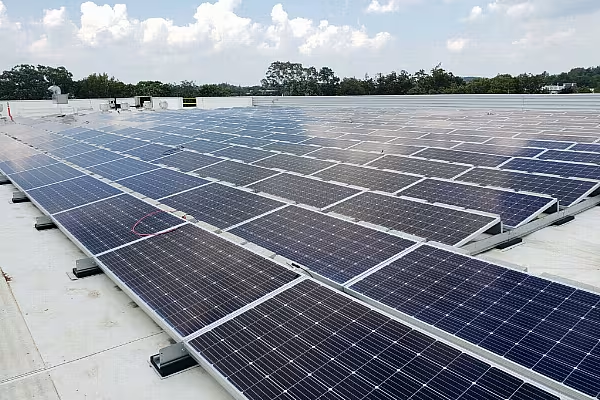Building on our report on the impact COVID-19 has had on the sustainability agenda, ESM caught up with a number of industry leaders seeking to drive positive change, including Chris Daly, Vice-President Sustainability, PepsiCo Europe.
COVID-19 has been a period of deep reflection for the sustainability movement, highlighting how vital but vulnerable our food system can be. Thanks to the heroes across the food industry, on the whole, it has stayed resilient.
At PepsiCo, we’ve actually stepped up our commitments on sustainability – now is the time to go further and faster. The pandemic has been a wake-up call. Globally, our food system was under pressure before, and those pressures are even greater now.
That’s why it’s so important that we – and others in our industry – harness the learnings from the pandemic to work towards a green recovery across Europe, finding systemic solutions that we can implement in faster, more meaningful ways. We want to use our scale and reach to help build a food system that can provide nutrition and enjoyment while protecting and restoring the planet.
At PepsiCo, we haven’t allowed ourselves to waver in our commitments, despite the disruption of this year. As a global business, our teams are used to working both remotely and virtually, and I personally feel the level of connectivity we’ve had has been remarkable. We have had to adapt the way we get things done, however, and be much more agile in order to maintain that momentum.
We strongly support the ambitions of the European Green Deal, and we want to play a key role in helping Europe achieve climate neutrality. It’s not about talking about what we can do any more – we now need to take action. During the last few months we have signed up to the UN’s Business Ambition for 1.5°C, announced we will use 100% renewable energy across our manufacturing sites in Europe by 2022, and continued accelerating our efforts on creating a circular economy.
While we’re taking action in our business, we know that tackling the issue of plastic waste requires collaboration with others in the value chain, as well as governments, NGOs and consumers. We recently announced our participation in the HolyGrail consortium, where we will trial digital watermark technology on our snacks packets, which, when scanned at waste centres, will help identify what the packaging material is made from and easily sort it.
No single organisation or industry can solve big sustainability issues alone. We need to share and discuss the challenges we are facing to gain perspective and help drive industry-wide progress. We also need to be braver in acknowledging where we need to do better and learn from lessons of the past. That is our intent for the future.
© 2020 European Supermarket Magazine – your source for the latest retail news. Article by Stephen Wynne-Jones. Click subscribe to sign up to ESM: The European Supermarket Magazine.














